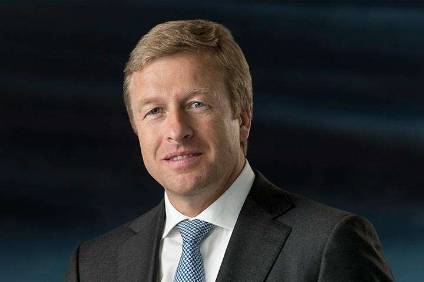
BMW has reported a sharp fall in quarterly deliveries and warned that the decimation of demand in major automotive markets will impact its annual profits in 2020.
The BMW Group delivered a total of 477,111 BMW, MINI and Rolls-Royce brand vehicles to customers worldwide in the first three months of 2020, a 20.6% fall on the same period of 2019.

Discover B2B Marketing That Performs
Combine business intelligence and editorial excellence to reach engaged professionals across 36 leading media platforms.
Despite the fall in volume, BMW Group revenues increased slightly to EUR23,252m (2019: EUR22,462m; +3.5%) year-on-year. Positive product mix effects and improved selling prices cushioned the impact of the drop in volumes.
BMW said Q1 profit amounted to EUR1,375m and was therefore significantly higher than the previous year’s corresponding figure of EUR589m, but there was a major distorting factor in the comparison. The Q1 2019 result was negatively impacted by the recognition of a provision for approximately EUR1.4bn in connection with EU antitrust proceedings.
BMW said it ‘expects the consequences of the corona pandemic to constrain the operations of the entire automotive industry for quite some time to come’.
Group profit before tax is predicted to be significantly lower than in 2019. Automotive segment earnings are forecast to deteriorate, particularly in the first half of the year. The company has widened the guided range for the EBIT margin of the Automotive segment due to the ‘extremely volatile’ situation. The company now expects the EBIT margin for 2020 to be within the range of 0% and 3% (compares with pre-crisis 2-4%).
“Quite clearly, the situation remains serious and market forecasts are subject to constraints under these circumstances. We are gradually ramping up our production again according to demand in each market. However, we are monitoring developments extremely closely to be able to respond with maximum flexibility,” said Oliver Zipse, BMW CEO and Chairman.
“We are keeping a tight rein on inventory levels because liquidity has absolute priority in this situation.” – Oliver Zipse
“We are keeping a tight rein on inventory levels because liquidity has absolute priority in this situation,” he added.
Zipse also defended BMW’s underlying business model. “In no way does the pandemic call our business model into question. Driven by technology and innovation, our business model will remain future-proof after the current crisis has ended,” he said. He said BMW will maintain high levels of investment in key technologies.
By 2025, BMW intends to invest over EUR30bn in R&D. Electrification remains a priority as part of meeting tighter EU fleet average CO2 emissions. BMW says it is set to achieve the stipulated CO2 fleet target for new vehicles registered in Europe this year – around 20% below last year’s target. This is planned to be achieved by BMW with a division: ‘one third of the required reduction through further improvements to its conventional drivetrain systems and the remaining two thirds by increasing the number of electrified vehicles it produces’.
Zipse confirmed: “We remain firmly committed to the CO2 targets agreed within the European Union and to the introduction of the Euro 6d emissions standard. We simply cannot afford to rest on our laurels when it comes to protecting the environment.”
In total, 30,692 electrified BMW and MINI brand vehicles were delivered worldwide in Q1 (+13.9%). “We are therefore well on track for meeting the EU’s CO2 targets,” said Zipse.
Despite the company highlighting its high R&D spend, there are also signs of investment trimming.
Capital expenditure on property, plant and equipment and other intangible assets amounted to EUR 687m in Q1 (2019: EUR999 million; -31.2%) for the first quarter. Planned capital spending will fall to EUR4bn this year from EUR5.7bn last year.
“Our proven strategy of targeted investment with a sense of proportion applies more than ever. In view of the current situation, we will either put certain projects on hold or subject them to further review. We therefore expect to reduce capital expenditure from almost 5.7 billion euros in the previous financial year to less than four billion euros in 2020,” said Nicolas Peter, Member of the Board of Management of BMW AG, Finance. “The BMW Group has additionally bolstered its already strong liquidity position by increasing liquid funds to almost 19 billion euros at the end of the quarter. We continue to have the best credit rating of all European carmakers and the second-best worldwide. Our long-term strong creditworthiness enables us to continue benefiting from excellent access to international capital markets.”






